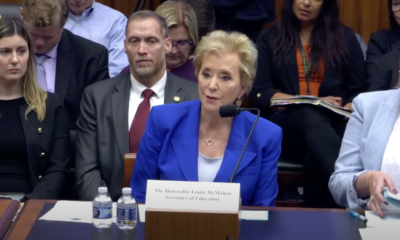cct-tracking
IRS Plans Massive Workforce Cuts: Up to 50% Layoffs on the Horizon

In a significant move, the IRS is considering workforce reductions of up to 50%, as reported by sources familiar with the situation. This draft plan involves layoffs, attrition, and incentivized buyouts, which have sparked concerns among current employees and former officials.
Under this initiative led by the Trump administration, the Department of Government Efficiency aims to cut down the federal workforce size significantly. Measures include closing agencies and laying off probationary employees who lack civil service protection, while also offering buyouts through a “deferred resignation program” to facilitate swift staff reductions.
Former IRS Commissioner John Koskinen voiced serious concerns about these changes, stating that such drastic cuts could lead to dysfunction within the agency. Presently, the IRS employs approximately 90,000 people, with a workforce consisting of 56% people of color and 65% women.
Earlier this year, about 7,000 probationary IRS employees were laid off, further shrinking the agency’s capacity. Additionally, while federal employees were offered buyouts, those involved in critical tax season activities were informed they could not accept these offers until after the April filing deadline.
The administration is also looking to reallocate IRS staff to the Department of Homeland Security to support immigration enforcement efforts. This request, made by DHS Secretary Kristi Noem to Treasury Secretary Scott Bessent, highlights the administration’s broader goals beyond mere workforce reduction.
An open letter from Koskinen and six other former IRS Commissioners in the New York Times emphasized the potential negative impact of these cuts on the government’s efficiency in tax collection. They argued that aggressive reductions in IRS resources would ultimately hinder its effectiveness.
The White House has directed federal agencies to submit reports outlining their reduction plans by March 13, although it remains uncertain whether the IRS’s proposals will receive approval or when they might be enacted. Requests for comment from the White House, Treasury Department, and IRS have gone unanswered, highlighting the uncertain future of these plans.


















